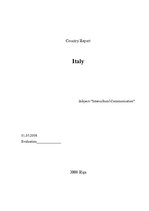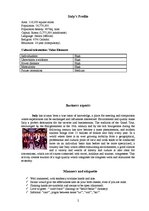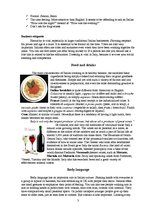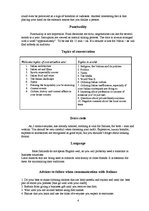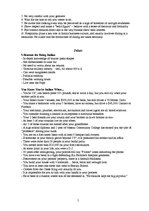-
Italy. Business Manners and Etiquette
Research Papers4 Ethics, Tourism, Traveling, History, Culture
Manners and etiquette
Well mannered, with tendency to shake hands and kiss.
Italian would give the affectionate kiss on your both cheeks, even if you are male.
Shaking hands are symbolic and means to be open (disarmed).
Love to greet : “ caro!/cara!” (darling) or “bello!/bella!” (honney).
Informal: “cao!”, jargon between teens “tu!”, “voi!”, “lei!”.
Formal: Senora, Senor.
The time feeling: More sensitive than English. It seems to be offending to ask an Italian “How was the night?” instead of “How was the evening?”
Don’t ask for forgiveness.
Business etiquette
Hierarchy is vital, especially in larger traditional Italian businesses. Showing respeact for power and age is a must. It is essential to be formal all the time. Titles are also very important. Italians often use titles and surnames even when they have been working together for years. …
Italy has always been a true oasis of knowledge, a place for meeting and comparison where experiences can be exchanged and influences intersected. Environment and quality make Italy a perfect destination for the traveler and businessman. The tradition of the Grand Tour, encouraged by the Enlightenment in the 18th. century and by the rich bourgeoisie during the following century has now become a mass phenomenon, and modern tourism brings over 15 billions of dollars into Italy every year. In a world where there is an ever growing mobility from a geographical, professional and cultural point of view and work tends to be conducted more on an individual basis than before and be more specialized, a country like Italy which offers stimulating environments, a good climate and a variety and wealth of history and culture is also ideal for conventions, which are of course connected with travel, holidays and tourism. congresses.

